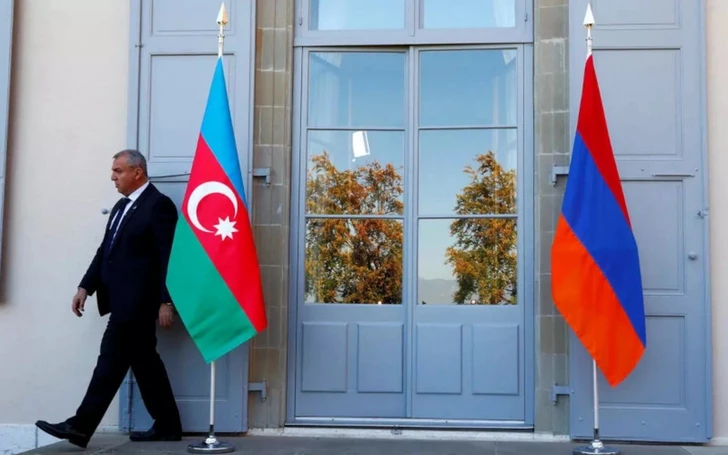The historic agreements reached between Azerbaijan and Armenia in Washington have, as expected, triggered a wave of outrage among Armenian nationalists. Still gripped by revanchist sentiments, they accuse Prime Minister Nikol Pashinyan of yet another “betrayal,” “capitulation,” and “surrender of territories” — rhetoric that only exposes the crushed ambitions and distorted worldview of those opposing peace with Azerbaijan.
Amid this anti-Washington hysteria, one segment of the Armenian opposition descends into despair, while another braces for what it calls a “final battle” with the ruling authorities. From detention, oligarch Samvel Karapetyan has already announced plans to create a new “political movement” with “ambitious plans for Armenia.” The entire revanchist camp, still dreaming of renewed aggression against Azerbaijan, pins its hopes on restoring Armenia’s “strategic alliance” with Russia, maintaining Moscow’s 102nd military base in Gyumri, and other steps aimed at reviving Armenia’s role as a Kremlin outpost.
Behind these anti-peace maneuvers, Moscow’s fingerprints are unmistakable. The Russian Foreign Ministry has already floated talking points meant to undermine the legitimacy of the documents signed by the leaders of Azerbaijan and Armenia in the presence of the U.S. president — including the clause establishing the U.S.-backed “Trump Route” Zangezur Corridor linking mainland Azerbaijan with its Nakhchivan exclave. The statement by Russian MFA official Alexey Fadeev — stressing Armenia’s membership in the Eurasian Economic Union (EAEU) and the presence of Russian border guards in Syunik — is a clear attempt to pressure Yerevan and remind it of Moscow’s grip.
To reinforce such “advice,” the Kremlin will undoubtedly try to boost Pashinyan’s opponents ahead of Armenia’s 2026 elections. Helping them secure victory is Moscow’s best chance to redirect Armenia’s foreign policy back toward a pro-Russian course — which would inevitably involve sabotaging the Washington agreements. The peace treaty with Baku can only be signed after Armenia amends its constitution to remove territorial claims against Azerbaijan. While Pashinyan’s government intends to pursue that change after winning reelection, the pro-Russian opposition hopes to block it by unseating him next year. Whether Moscow and its Armenian proxies can pull off such a maneuver remains to be seen.
This strategy, however, suffers from a fatal miscalculation. The Zangezur Corridor now involves the United States, with the consent of both sovereign states — Azerbaijan and Armenia — that alone have the right to decide on this route.
Most importantly, Azerbaijan itself is determined to crush any attempt to undermine its post-war status as a regional power. This resolve is the ultimate guarantee that any effort to use Armenia as a tool against Azerbaijan is doomed from the start.
Source: Oxu.Az


